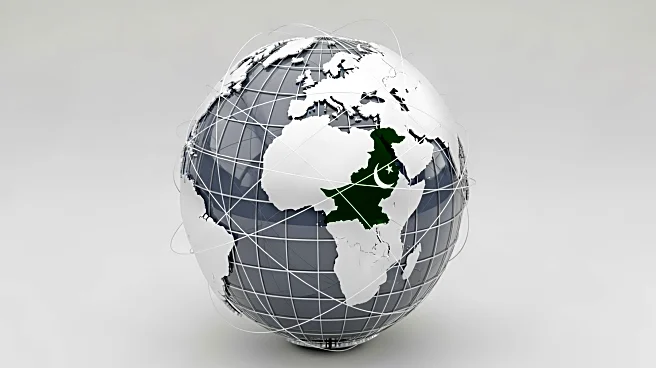What's Happening?
During the second day of The Future Summit (TFS) 9th Edition in Karachi, experts emphasized the need for Pakistan to adopt a self-interest-driven approach to policy-making. The summit highlighted the importance of prioritizing national interests over
external reactions, particularly from neighboring India. Dr. Moeed Yusuf, Vice Chancellor of Beaconhouse National University, stressed that policies should serve citizens first, advocating for trade with India if it benefits Pakistan. Dr. Ishrat Husain, former governor of the State Bank of Pakistan, linked geo-economics with geo-politics, urging education reform to boost domestic productivity. Senator Anwaarul Haq Kakar called for strategic convergence between diplomacy, defense, and development.
Why It's Important?
The call for a self-interest-driven approach in Pakistan's policy-making is significant as it could redefine the country's diplomatic and economic strategies. By focusing on national priorities, Pakistan may enhance its economic resilience and global posture, potentially leading to improved regional connectivity and economic growth. This shift could also impact Pakistan's relations with India, as unilateral decisions like opening trade could boost the economy and improve international perceptions. The emphasis on education reform and skilled labor exports could strengthen Pakistan's position in global supply chains, contributing to long-term economic competitiveness.
What's Next?
If Pakistan adopts the recommended self-interest-driven approach, it may lead to policy changes that prioritize economic growth and regional connectivity. This could involve opening trade with India and easing visa restrictions, potentially enhancing bilateral relations. Policymakers might focus on uplifting underprivileged communities and aligning national policies with citizens' needs. The emphasis on education reform could lead to initiatives that strengthen science and mathematics education, improving human resource utilization. These steps could redefine Pakistan's strategic position amid global power transitions, fostering economic sovereignty and digital integration.
Beyond the Headlines
The shift towards self-interest-driven policy-making in Pakistan could have deeper implications for its geopolitical strategy. By prioritizing national interests, Pakistan may move beyond traditional alignments, asserting digital and economic sovereignty. This approach could redefine Pakistan's role in the evolving multipolar world order, where China plays a pivotal role. The focus on geo-economics and education reform may lead to long-term shifts in Pakistan's economic landscape, enhancing its integration into global supply chains and boosting its international relevance.















